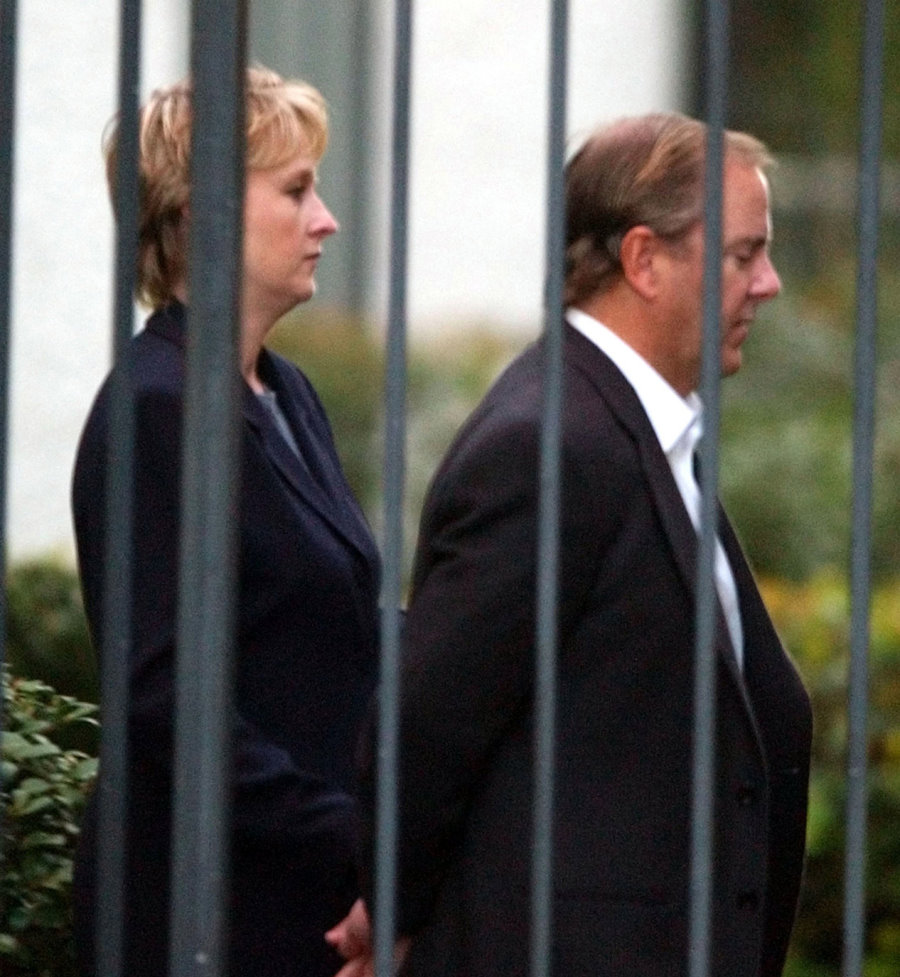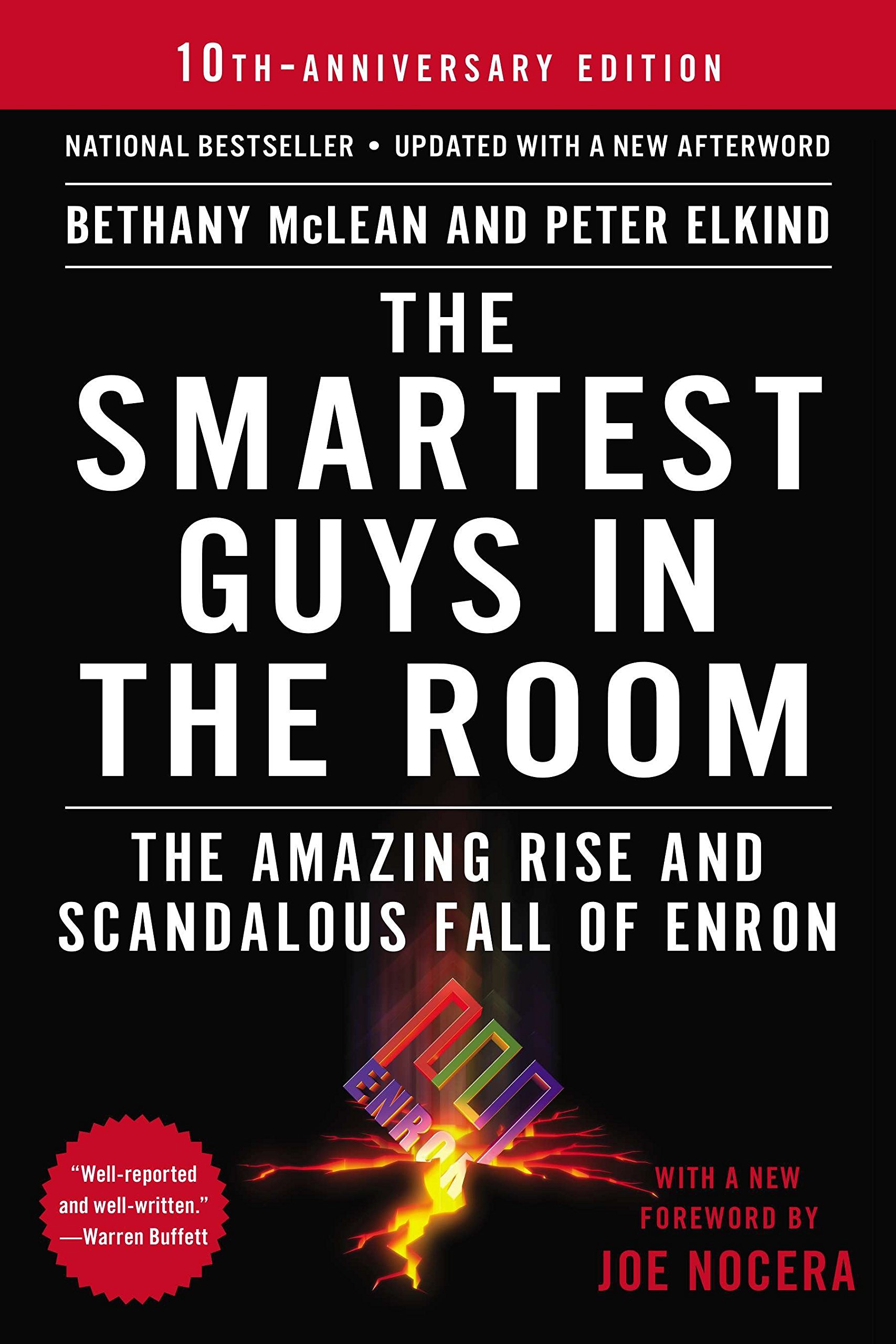

This modern-day South Sea Bubble grew and grew and grew. A credulous business media bought into the myth of Enron's new ways of magicking profits out of thin air and so did the merchant banking community. They marketed derivative financial products based on everything from internet bandwidth to, unbelievably, the weather. Enron brokered the buying and selling of energy futures whose values they were allowed to include as part of their own assets, like the owner of an armoured car who believes he owns the gold bullion while it is being carried inside, and, incredibly, were permitted to consider the hypothetical future value of anything they owned as a current reality. Enron's chairman and chief executive officer were Kenneth Lay and Jeffrey Skilling, two supremely arrogant and belligerent men who believed they were the "smartest guys in the room": that through sheer cleverness and creativity - an unfortunate concept in connection with accounting - they had brought into being the most innovative corporation in the US. The Enron catastrophe emerges from this film as a fascinating story of crookedness that grew out of business practices, which, though audacious, were just about on the right side of the law.

She read the accounts, and doggedly ignored the spin. She assessed Enron not on the basis of its ongoing success, not on the basis of the conspicuous wealth and prestige of its executive officers, not on the basis of its glossy brochures and glitzy premises - but purely and simply on the numbers. McLean's triumph lay in her forensic rigour.

When the truth came out, Lord Wakeham surrendered this sinecure and one other: chairman of the Press Complaints Commission. Sadly, though, there is no mention of one British participant in this sorry story: Tory peer John Wakeham, who in the 1990s pulled down a juicy £80,000 per year serving as non-executive director for Enron and brushed aside warnings that his employer was dodgy. Her story is brilliantly told in this cracking documentary directed by Alex Gibney, based on the subsequent book that McLean co-wrote about the Enron scandal. Thanks to McLean, the public discovered that Enron was a fraud, inflated by mendacious accounting, the manipulation of public utilities and Maxwell-style raiding of pension funds. It was the first jab in an investigation revealing the biggest and most grotesque scam of modern times. She is the magnificently persistent reporter who in 2001, in the face of sneering from the American business boys' club, wrote an article in Fortune magazine suggesting that Enron, the gigantic US energy corporation, was "overvalued". "Fiercely intelligent, terrifying and absurdly funny… It’s a bracing portrait of American power-lust run amok.T here should be a gold statue of Bethany McLean outside every journalism school in the world. Enron contributed mightily to Bush campaign coffers, but once its $30 billion debt emerged from a maze of creative accountancy, the corporation went from being the New Economy poster child to its Frankenstein monster.” - J. Bush called him, ‘Kenny Boy’) and administered by the Harvard-educated macho man Jeffrey Skilling, whose Gordon Gekkoid business philosophy advocated unlimited greed.
#The smartest guys in the room movie full
“Less corporate noir than capitalist disaster film… Alex Gibney's soberly entertaining documentary – adapted from the book by Bethany McLean and Peter Elkind – provides a full account of the deregulatin' Texas con men who, reporting imaginary profits while concealing real losses, rode the bull market into America's largest bankruptcy… America's ‘most innovative company’ (per Fortune), Enron was created by preacher's son Ken Lay (or as George W. A riveting beginner’s guide to the mind-boggling Enron crash.


 0 kommentar(er)
0 kommentar(er)
